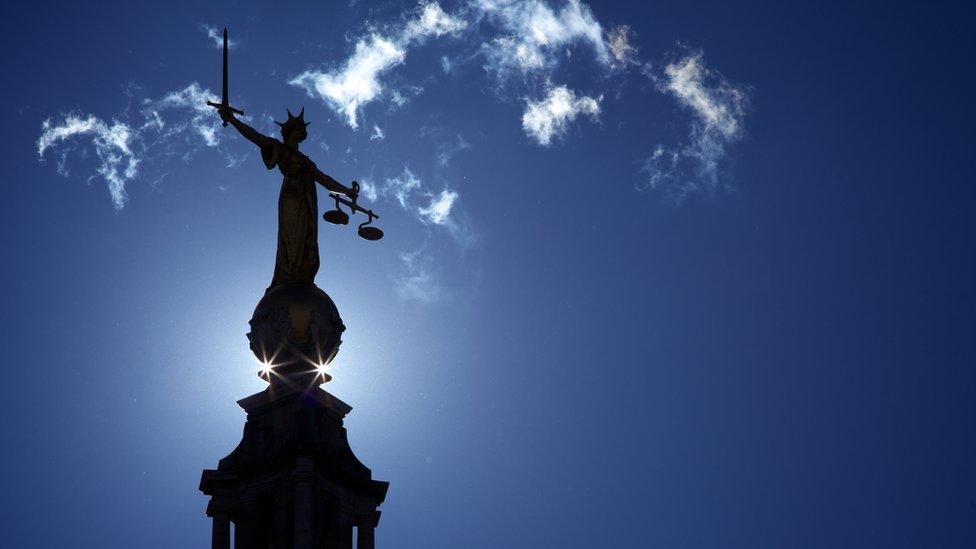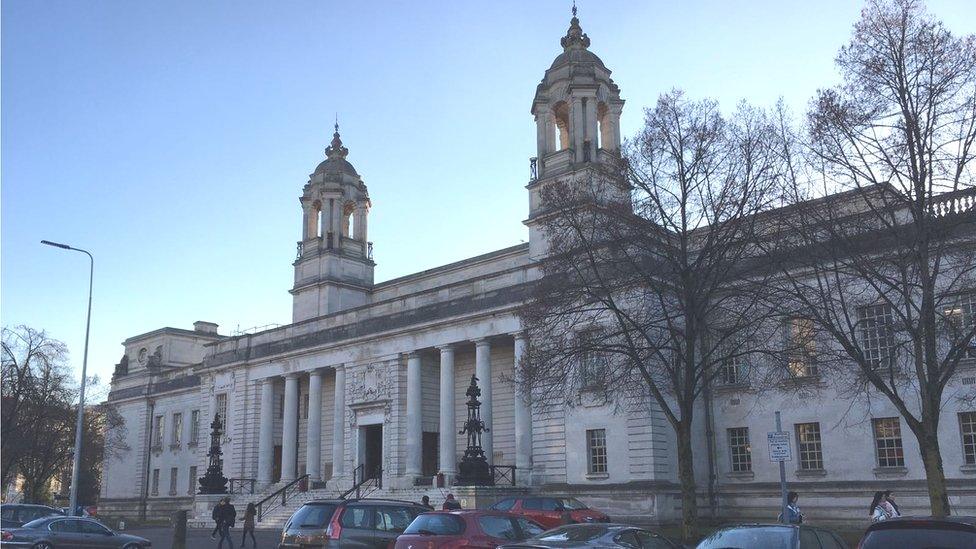Coronavirus: Robert Buckland warns over court case backlog
- Published

Work to clear a backlog in court cases caused by the coronavirus pandemic could continue into next year, the justice secretary has suggested.
Robert Buckland said juries with fewer members and using public buildings as courtrooms could reduce the caseload.
He also said a proposal for judge-only trials in less serious crown court cases had "clear merit".
Some jury trials in England and Wales resumed in May, after almost two months on hold.
Speaking to BBC Radio 4's Political Thinking with Nick Robinson podcast, Mr Buckland said ministers needed to "do more" to help deliver "swift justice".
He added: "I'm going to have to use every tool in the book."
All jury trials in England and Wales were halted on 23 March as part of efforts to ensure respect for social distancing rules in court.
Mr Buckland told MPs earlier this month that the backlog in crown court cases stood at 41,000 - up from 39,000 before the coronavirus crisis.
'Clear merit'
He told Nick Robinson work was "going on apace" to convert public buildings into "Nightingale courts" to deal with a "whole myriad of cases".
"The caseload has increased somewhat, and we need to eat into that - and that will take quite a few months this year and next year," he said.
He said he was "very attracted" by the idea of temporarily cutting jury numbers - as happened during the Second World War - to help reduce the backlog.
In 1939, juries were cut to seven members except for murder and treason trials. Usually 12 jurors sit in England, Wales and Northern Ireland - with 15 in Scotland.

A SIMPLE GUIDE: How do I protect myself?
IMPACT: What the virus does to the body
RECOVERY: How long does it take?
LOCKDOWN: How can we lift restrictions?
ENDGAME: How do we get out of this mess?

Lord Chief Justice Lord Burnett has previously suggested juries could be reduced in size - but trials that have resumed have taken place with the normal 12 jurors.
Mr Buckland also told the podcast a suggestion from Lord Burnett for less serious crown court cases to be heard by a judge and two magistrates "has clear merit".
Lord Burnett has put forward the idea for so-called "either-way offences" - such as assault, theft and burglary - which can normally be heard in either a crown or magistrates court.
He told BBC Radio 4 programme Law in Action the proposal could get round problems with social distancing that come with involving a jury.
Mr Buckland also said that allowing jurors to hear evidence via video link was under consideration, and he had been "impressed" by mock trials to try out the idea.
Scottish courts
On Friday, Scotland's most senior judge called for new legislation to tackle the backlog of cases in the High Court and sheriff courts, which he said could exceed 3,000 by March next year.
Lord Carloway, the Lord President of the Court of Session, said a requirement for jurors to sit in more than one courtroom would reduce trial capacity to 30% of what is normal.
He said measures proposed so far to overcome social distancing were "simply tinkering at the margins of a major problem" which required a "political solution."
- Published3 May 2020
